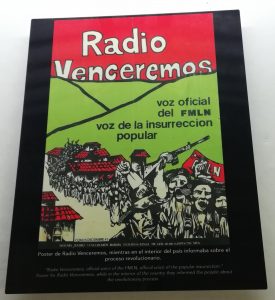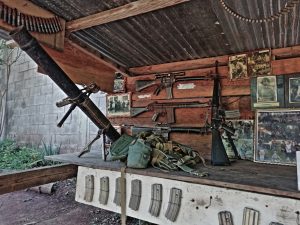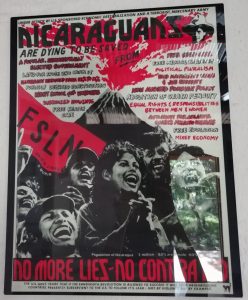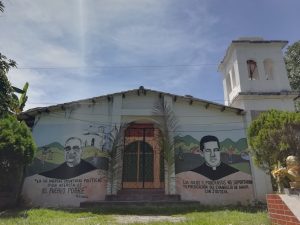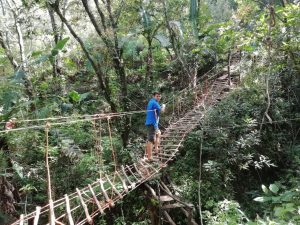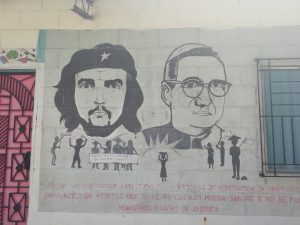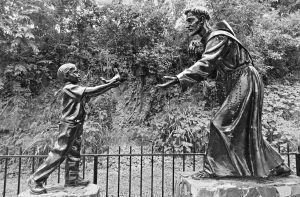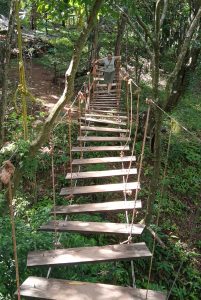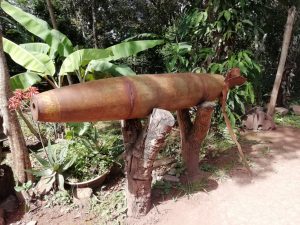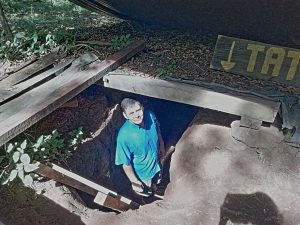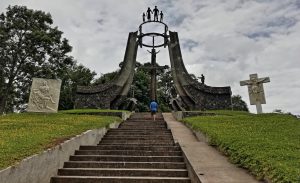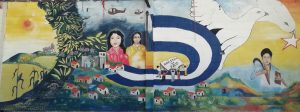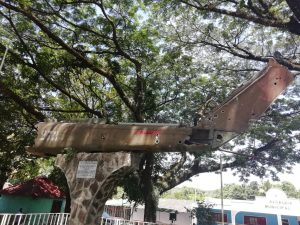Overland El Salvador? Seriously? Yes. It’s a gem. An un-cut diamond maybe, but nevertheless, still a gem. Beautiful country, plenty to see and do, tasty street-food, reasonable roads and a welcome which trails a very close third behind the legendary friendliness of Colombia and Brazil. In our last blog we climbed volcanos, lounged on beaches, wondered at ancient ruins, hiked around crater-lakes and visited interesting museums. All very fun and fabby-doo, but then there’s the ‘seriously’ bit of El Salvador… the ‘elephant in the room’. El Salvador is more famous for its 1979-92 civil war and its current crime problems than its tourist attractions. So let’s check these out…
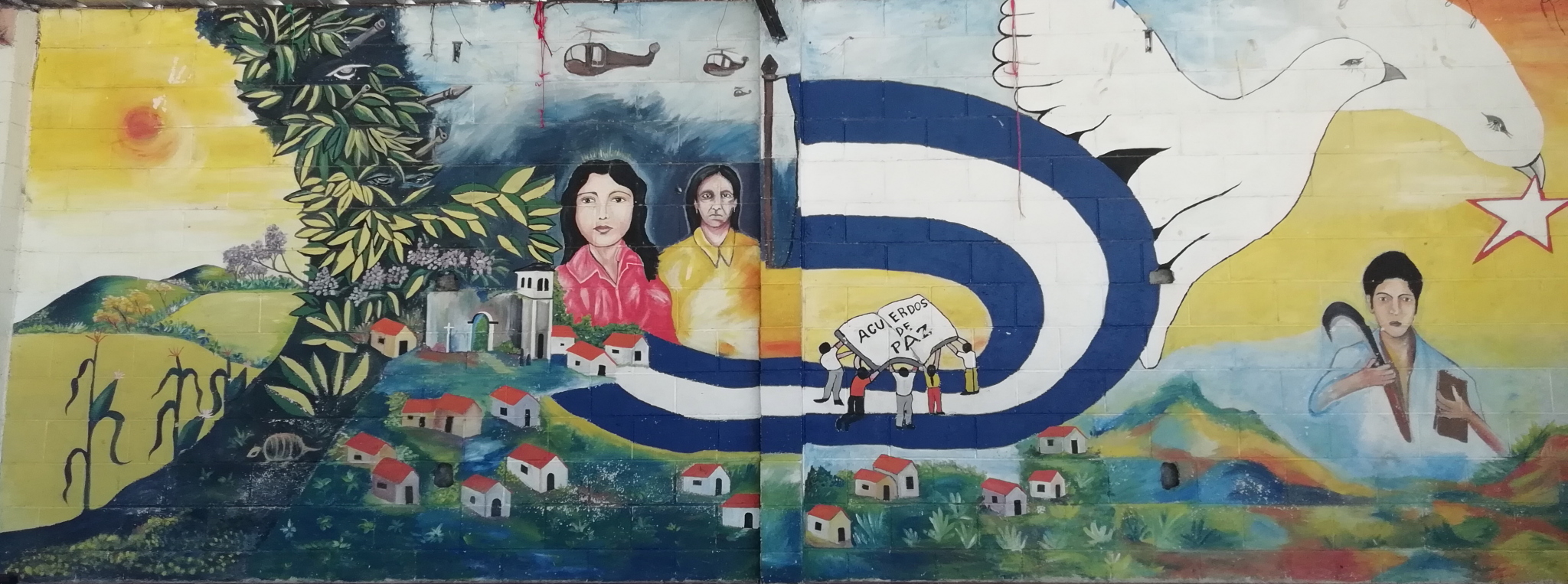
‘War tourism’ overland el salvador
We’ll start with a fundamental question: Is it right to engage a people’s suffering as a tourist attraction? Particularly if that suffering is relatively recent and still very much in the minds of many? El Salvador is doing ‘war tourism’ in a very small way, but it’s certainly not unique in seeking to capitalise on its recent atrocities. Vietnam, for example, exploits this lucrative sub-sector of the tourism industry in much greater fashion. Having given the matter much thought, we have come firmly down on the side of supporting these enterprises for two reasons.
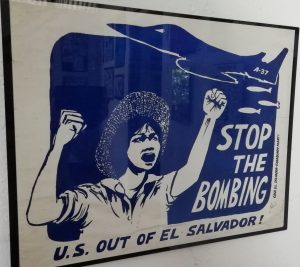 First, modern ‘war tourism’ is almost inevitably found in long-suffering and poverty-stricken regions. Tourism is an honest income for local people. The eloquent and confident amongst them become guides, telling heart-wrenching tales. But the wider community also gains from working on craft stalls, food and drink stands, as car-park attendants, hotel and cafe staff, security guards and park wardens. Many people make a living by association with ‘war tourism’.
First, modern ‘war tourism’ is almost inevitably found in long-suffering and poverty-stricken regions. Tourism is an honest income for local people. The eloquent and confident amongst them become guides, telling heart-wrenching tales. But the wider community also gains from working on craft stalls, food and drink stands, as car-park attendants, hotel and cafe staff, security guards and park wardens. Many people make a living by association with ‘war tourism’.
The second reason is education and remembrance. Just maybe… kids of today might learn from the abuses of power and horror perpetrated yesterday. Okay… world history doesn’t exactly record this to be likely. But even if they don’t, these dreadful events and the people who shaped them cannot be simply swept under the carpet and forgotten. War tourism helps keep their memory alive.
Strongholds
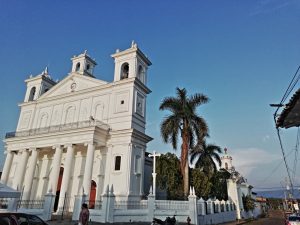
Beautiful Suchitoto
During the war, the stronghold areas of the FMLN rebels were mostly in the northern mountains along the Honduran border. Areas around the small colonial town of Suchitoto (which incidentally, is well worth a few days of your time) have established some tourism programmes and villages like Cinquera display in their central plazas, remnants of the US-supplied aircraft they managed to shoot down. There are many memorials to Archbishop Oscar Romero, assassinated whilst giving a sermon in 1980 and thereby martyred in the eyes of his people.
The best area to check-out the war story is around the border village of Perquin, with its well curated museum, artefacts and personal accounts. There’s a mock-up of the typical jungle camps and underground burrows from which the rebels operated and also broadcast their radio station ‘Venceremos’ (We will Triumph). Around this area, some of the worst atrocities of the war were committed.
A local guide explained to us how, on the morning of 11 December 1981, government troops marched in and evacuated whole families. The pre-text was that the men, women and children were being taken to a Red Cross zone for safety and they therefore willingly climbed into the trucks. Instead they were taken to a hillside site near the village of Mozote and massacred. On the very site now stands a beautiful memorial to the (estimated) 757 people who died that day. Over 130 of the victims were children and babies; there are gruesome photos of the aftermath set out on display. No matter what political side you take on these matters, you can’t help but be moved by the futility of it all. Such a pointless waste of life and made all the more relevant by the events happening right now in nearby Nicaragua.
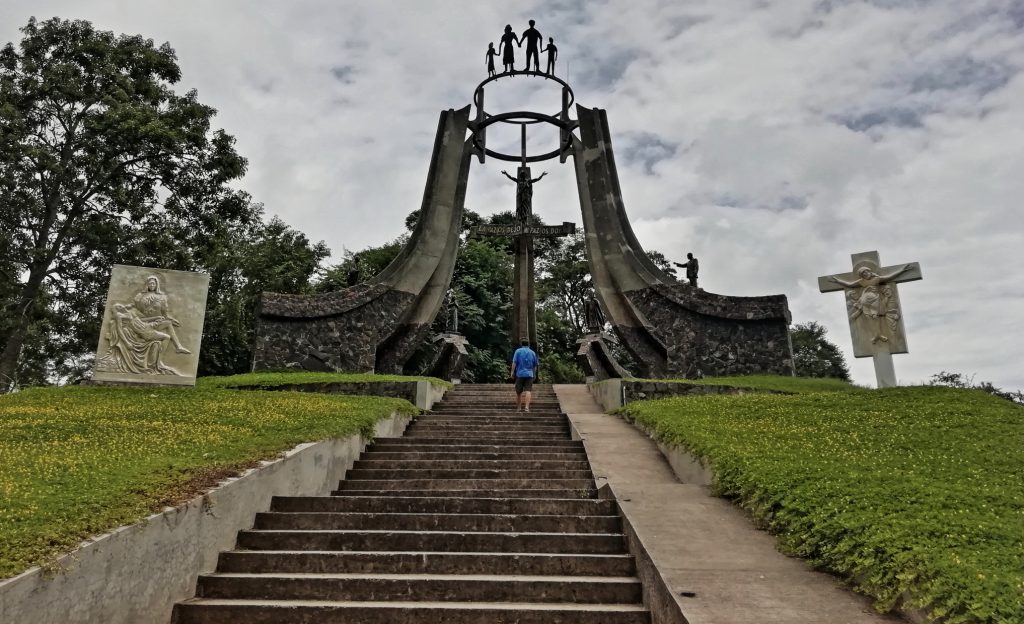
Puts things into perspective…
Ostrich Approach?
Now of course, the El Salvador war is long over and time moves on. We chatted to several older men who had skipped the country during the war, hiding out in Guatemala, Honduras, or Mexico. They have since returned to make lives for themselves again, working in various kind of tourism. And it’s true… El Salvador has got something here. Something that really could be exploited on the world tourism stage. I shudder to think that it might end up like Costa Rica with its cheesy ‘pura vida’ mantra, but it could certainly find its own middle-way to attract adventurous tourism. Arguably, all El Salvador needs is a better funded PR department, but that’s open to allegations of taking the ‘ostrich approach’ (you know… head in sand) to the issues facing the country today.
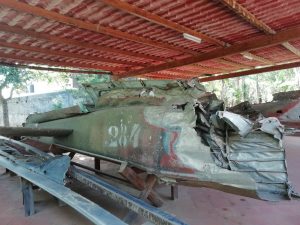
One that didn’t get away
We’re no experts on the regional politics and certainly wouldn’t claim that El Salvador is a trouble-free paradise. Step into the wrong part of town at any time of day, or even the right part of town at the wrong time of night, and you are putting yourself at risk. Make no mistake, there is some seriously bad stuff going on in these parts. But it’s gang-land stuff. As a foreign tourist with a bit of common sense, it’s easy to avoid these situations. Just use your nod.
As visitors fortunate enough to be able to stay in the less troubled areas of the country, the risk of becoming involved in the crime-ridden societies is minimal. Still not convinced? Okay… let’s do a comparison with London, UK. The city is currently facing a crime wave of knife attacks unprecedented in recent history. Official statistics for 2018 up to the end of April show 1,296 knife attacks (incl. 51 deaths) on the streets of London. Bad huh? But that’s not to say that Japanese or American tourists are being slaughtered on the streets of Westminster. No. It’s the unfortunate inhabitants of the less salubrious areas who face this daily threat to their lives. San Salvador may face these issues on a slightly greater scale than London, but the worst is still nevertheless avoidable by a savvy overlander.
If a place looks bad… and feels bad, it probably is bad. Just drive on to a place that doesn’t look or feel bad. Simples.
Heading to Honduras
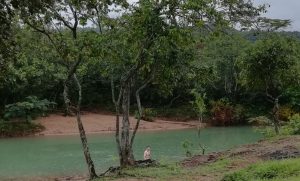
Cool riverside campspots around Perquin
As we head to Honduras, El Salvador really deserves to be left on a happy note. Yes, we’ve seen some sad history and we can’t ignore the fact that the country still faces some difficult issues, but what we found was a seriously fabulous country. Beautiful, affordable and above all, friendly. Not once did we feel threatened or unsafe. There are some great attractions with overland El Salvador and such a warm welcome. Many overlanders heading between north and south America skip through El Salvador in a day. It’s a small enough country for this to be easily achievable, but it’s a mistake. Just stay a while and have a look. You’ll be surprised. Seriously! 😊
El Salvador Gallery
- sdr
- dav
- dav
- sdr
- dav
- Cool riverside campspots around Perquin
- Puts things into perspective…
- One that didn’t get away
- dav
- Beautiful Suchitoto

